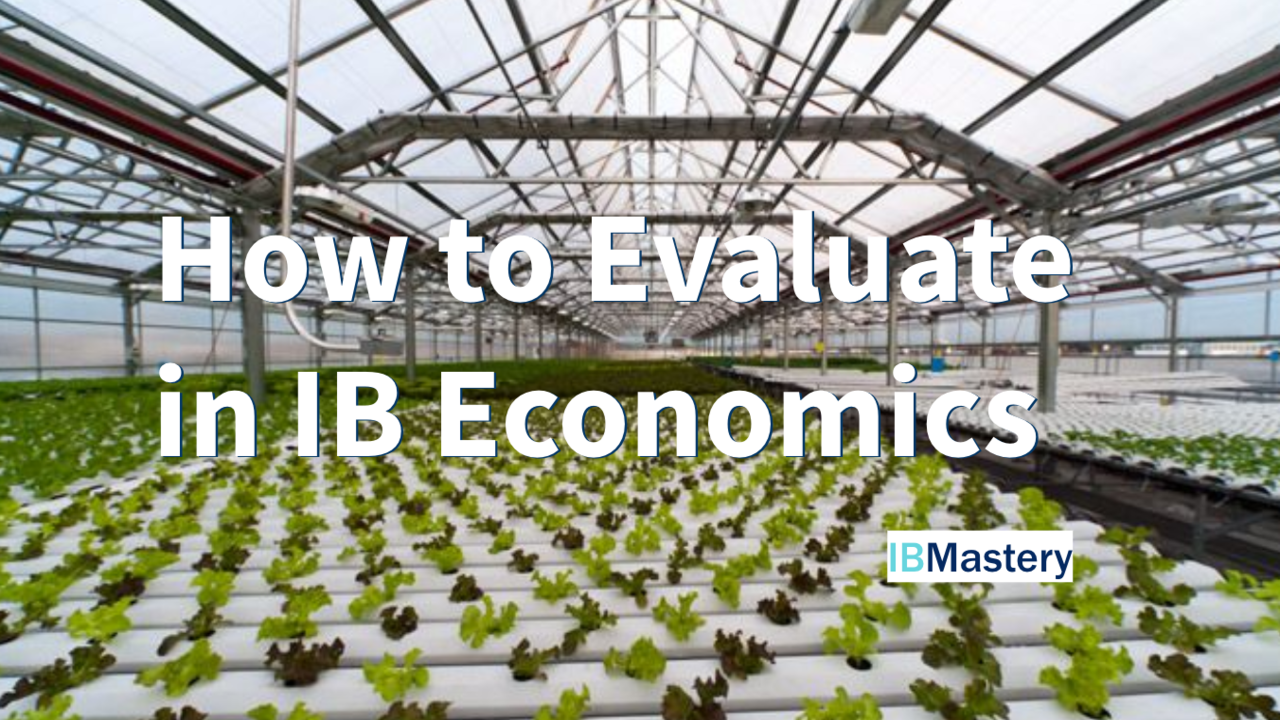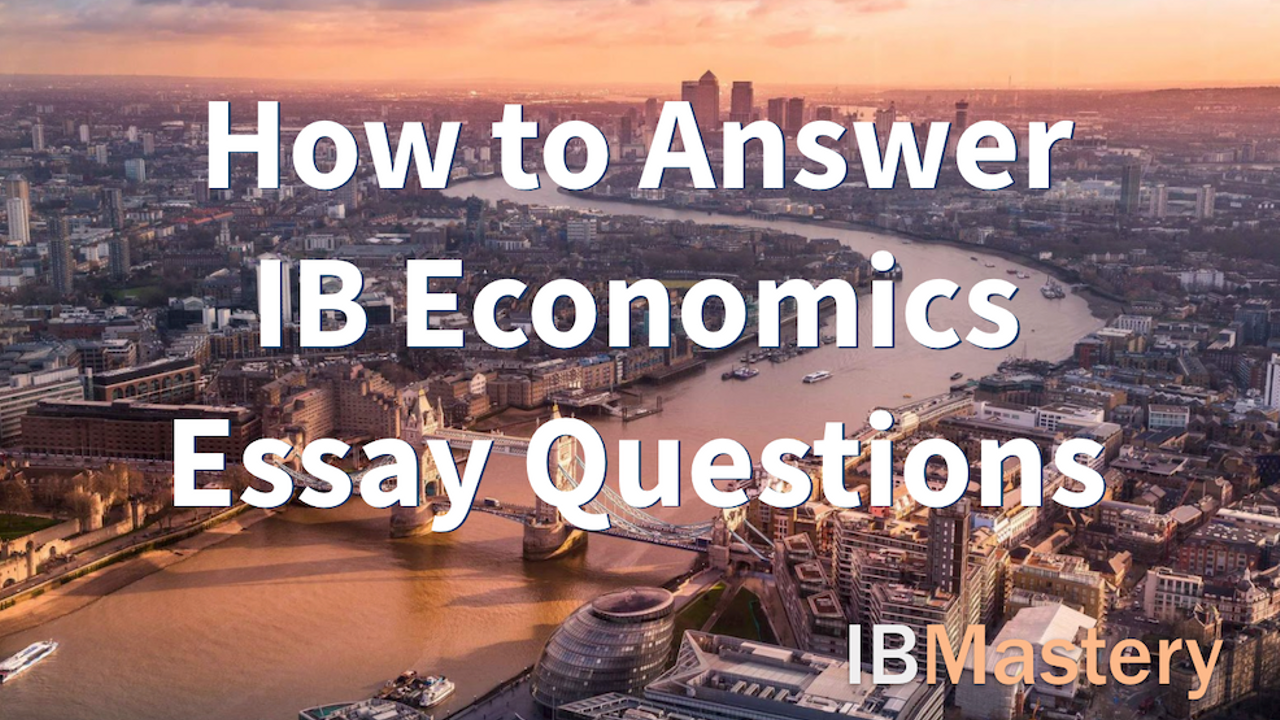How to Structure an Economics Extended Essay

Here is a step-by-step structure you can follow to complete your Extended Essay in Economics. The layout has changed recently, for example in terms of the cover sheet requirements and the reflections, but this post is up-to-date (and it includes a lot of helpful links).
Before you start writing...
Here are a few key points and other helpful links you’ll want to use:
- Be careful about choosing your research question. You’ve got a lot of options, but these generally fall under two categories 1) Evaluating the effects of a policy or 2) Determining the structure of a certain market. There are a lot of aspects that go into choosing a perfect EE question and it's worth taking your time to do this properly. (I'd be happy to meet with you to help you get your question right.
- Decide on your citation style. Most people go with MLA. It's best to decide this early on, so you gather the right info as you go. I recommend doing your citations as you write, so you don't loose track of which ...
Meeting The Economics IA Rubric Requirements

On this, the third of three posts to make sure you score full marks on your Economics Internal Assessments, I want to give you a detailed checklist you can use to check your own work. (Here is post one, Getting Started with your Econ IA and post two: the Econ IA Structure).
I have included what the IB says they expect for full marks, and translated that into actionable steps. If you do everything on the checklist your teacher will have to give you full marks.
This is up-to-date with the "new" IB Econ curriculum (first Assessment 2022).
A: Diagrams (3 marks)
IB Explanation: This criterion assesses the extent to which the student is able to construct and explain diagrams.
IB Expectations: Relevant, accurate and correctly labelled diagram(s) are included, with a full explanation.
Checklist (to get full marks):
Drawing the diagram:
-You have fully labelled your x and y-axis (See the Structure for this here).
-You’ve chosen the most appropriate diagram (the one that best explains ...
How to Write the Economics Internal Assessment (Getting Started)

The IA is a brilliant opportunity to put some marks in the bank and make that 6 or 7 in the course much easier to achieve. This first article will focus on choosing an appropriate article.
Why does this matter?
If you choose a bad article you’ll find it like competing in the Olympic 100 meter dash wearing your granny’s high heels. It doesn’t matter how good you are. Your name might be Usain Bolt. You’re working with the wrong equipment, so you’re gonna get beat. Here, just like in your Extended Essay and so much else in life, you’ve got to make good decisions at the start of the thing to end up where you want to go. Actually, you need to decide on the concept you want to explore BEFORE you go looking for your article. You should normally focus on one of the really major concepts like supply and demand, market failure, or aggregate supply and taxes. And once you've done that you'll know what type of article you're looking for.
How to find the perfect article for your commentary
- Of...
Evaluation in Economics - Using CLASPP

Evaluation is a very important concept in IB Economics. But before we evaluate we always analyze.
Analysis is providing the DEED aspects --your Definitions, Explanations, Examples and Diagrams to show how the theory helps to answer the question.
Evaluation vs analysis
Basically, analysis is explaining the relevant theory. Whereas evaluation is where you reflect and notice effects of the policy and show your critical thinking (i.e. noticing limitations of the theory and making links to your key concept).
Economic theories (i.e. our diagrams) always suggest certain things are true --for example that price ceilings will result in shortages. However, our field is full of interesting assumptions and exceptions. For example, price ceilings don't always result in shortages, because they might be set above the current equilibrium price.
There are also uncertainties and priorities to consider when we're exploring a policy. Remember that in your IA, for example, you're almost always lookin...
The IB Economics Paper 1 Essay Structure

In the new syllabus (May 2022 exams onward) and get to choose 1 out of 3 questions, chosen from any of the 4 units. Paper 1 is worth 20% of your final for HL students and 30% for SL students.
You'll get get 75 minutes (1 hour and 15 minutes). That seems like quite a lot of time and it is, but you're expected to do a lot in that time, so you'll need to be careful to do everything you need to do in the time you get.
It’s easy to waste time (i.e with lengthly introductions or descriptive writing) that earn you no marks at all.
If you use this structure you’ll be sure to earn all of the possible marks for each of your IB Economics Paper 1 essays.
Part A - 10 Marks (Roughly 30 Minutes)
Answer the question using real case studies and theory from the course.
Definitions and your real life example
In a quick introduction paragraph, do the following:
- Start with a sentence explaining part of what the question is about, using a keyword from the course, if possible.
- Define a key wor ...
The Theory of the Firm Rappers (Economics)

 Theory of the firm is hard! ...It's ToF to get your head around. ...Get it? 🤣🤣
Theory of the firm is hard! ...It's ToF to get your head around. ...Get it? 🤣🤣
There's an easy way!
You can easily memorize everything. 🧠 I'll show you here.
Background
The first year I taught IB Economics, my students really struggled with the diagrams and all of the memorization in this part of the course. And I didn't know how to help them remember it. But I love taking something hard and making it easy. So I love mnemonics and finding a structure (or a system) that you can always use to get great results. This approach is the only thing that works for me.
So, while this is obviously an Economics post, you can also take this as a lesson in how to use mnemonics to pack otherwise hard-to-remember information into your brain.
I read a lot of books on this subject to help my students (people like Cal Newport, Adam Robinson and Joshua Foer --who's book is subtitled "The Art and Science of Remembering Everything") and I've applied what I've learned here. You might want to read your...






